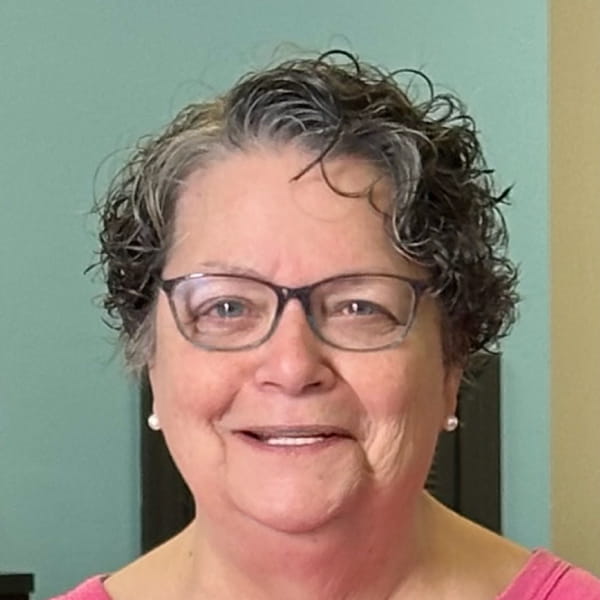
PhyllisCare
From screening to surgery with the Wellstar STAT Clinic for Lung Cancer
Published on May 27, 2025
Last updated 01:33 PM May 27, 2025
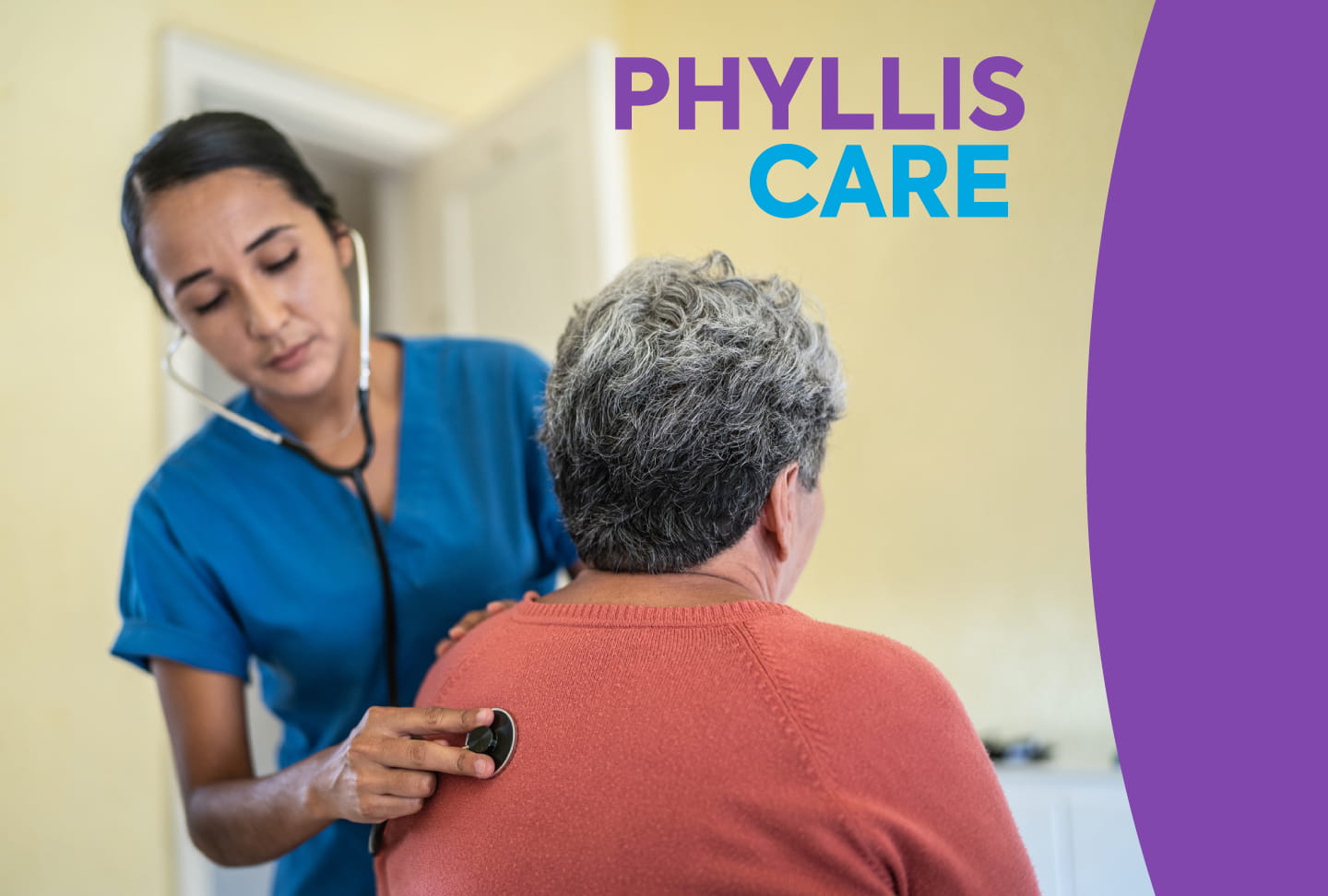

Cancers are so insidious. You’re not going to just go, 'Gee, I don’t feel good; it must be cancer.' There’s no big warning signs until it’s serious. Early detection is absolutely our best weapon. It’s our best defense.
- Phyllis Burgess
Lung Cancer Survivor
Tags
David Austin Gose Paulding Medical Center Daniel Leite Cardoso FortesPeopleCare Cancer Care
Related Articles
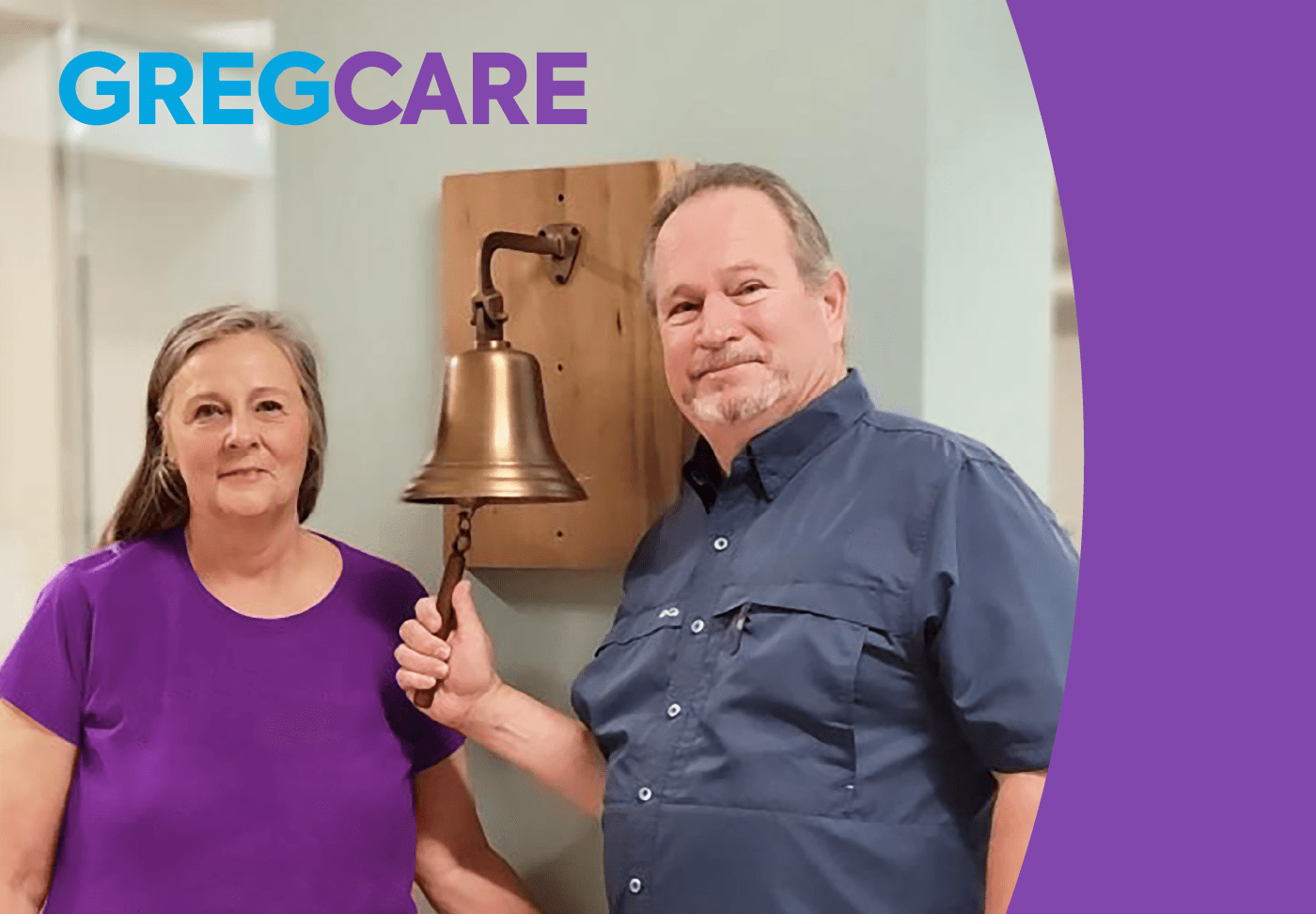
PeopleCare
GregCare
“My wife and I are blessed to live on this land,” Greg Rodgers said. “God instructs us to be good stewards of the land and we are dedicated to doing just that. We’re always mowing, planting and tending to fallen trees.”
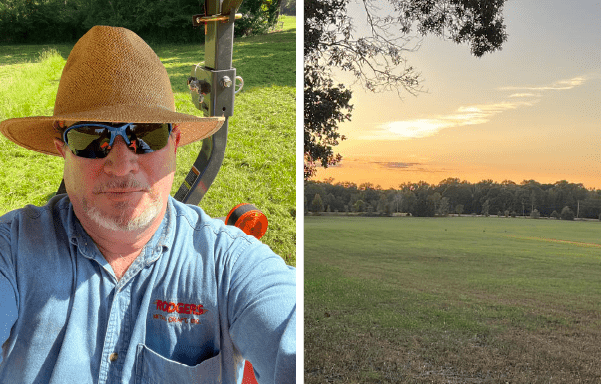
Much like their acreage, Greg sees his body as something that deserves to be maintained with care. And he’s an advocate that other men do the same. Seeing a doctor regularly and getting screened can help identify conditions earlier so they’re more treatable. Greg learned that from his personal experience with prostate cancer, and the team at Wellstar West Georgia Medical Center who helped him overcome it.
“It’s not so much my story as the story of the professionals at Wellstar—they’re tremendous people,” he said.
The right tests for an accurate diagnosis
Prostate health is not something to ignore. Greg understands this now after a routine PSA test—a simple blood test—came back abnormal in 2020. When PSA levels are checked regularly and rise over time, they can be a sign of prostate cancer.Because of his elevated PSA, Greg began monitoring his prostate health and eventually, connected with Wellstar Urologist Dr. Richard Jadick in LaGrange. Dr. Jadick performed a UroNav fusion biopsy to investigate his climbing PSA. During the procedure, an MRI helps accurately target the biopsy location. This biopsy has a low false negative rate, meaning the results are more trustworthy than in the past. Greg’s results came back positive for prostate cancer.
Pursuing personalized, expert care
Because every case of prostate cancer is different, there are a range of options for treating it, from active surveillance (monitoring with imaging) to advanced treatments like robotic surgery and targeted radiation therapy that have fewer side effects than traditional treatments.Greg and Dr. Jadick discussed several options, but before Greg made any decisions, Dr. Jadick recommended he see Dr. Robert Taylor, a Wellstar radiation oncologist.
Greg remembers having reservations about radiation therapy. But once he arrived for the appointment, he felt immediately at ease. “Dr. Taylor is a quiet, confident person with a kind smile,” he said. “He was really good at explaining everything, going through studies and the different procedures. He’s so methodical, so good at answering questions and so patient.”
The option they settled on was a high dose of targeted radiation aimed at the prostate during a shorter treatment course (20 days versus 44). A newer technology called SpaceOAR Hydrogel would separate the rectum from the prostate during treatment, preventing unnecessary radiation exposure—and side effects.
“When it comes to choosing the right treatment, everything is a balance between the risk level and a variety of other personal factors,” Dr. Taylor said. “We want to provide treatment that is the least disruptive and most effective.”
To be sure this was the best plan for Greg, Dr. Taylor requested a second opinion from Mayo Clinic. Wellstar experts have a direct connection to Mayo Clinic specialists through its Mayo Clinic Care Network membership. Wellstar physicians and patients can access eConsults—virtual second opinions—at no additional cost to patients.
Some additional imaging was recommended, which validated Dr. Taylor’s treatment plan. Greg moved forward with his cancer treatment with pure confidence.
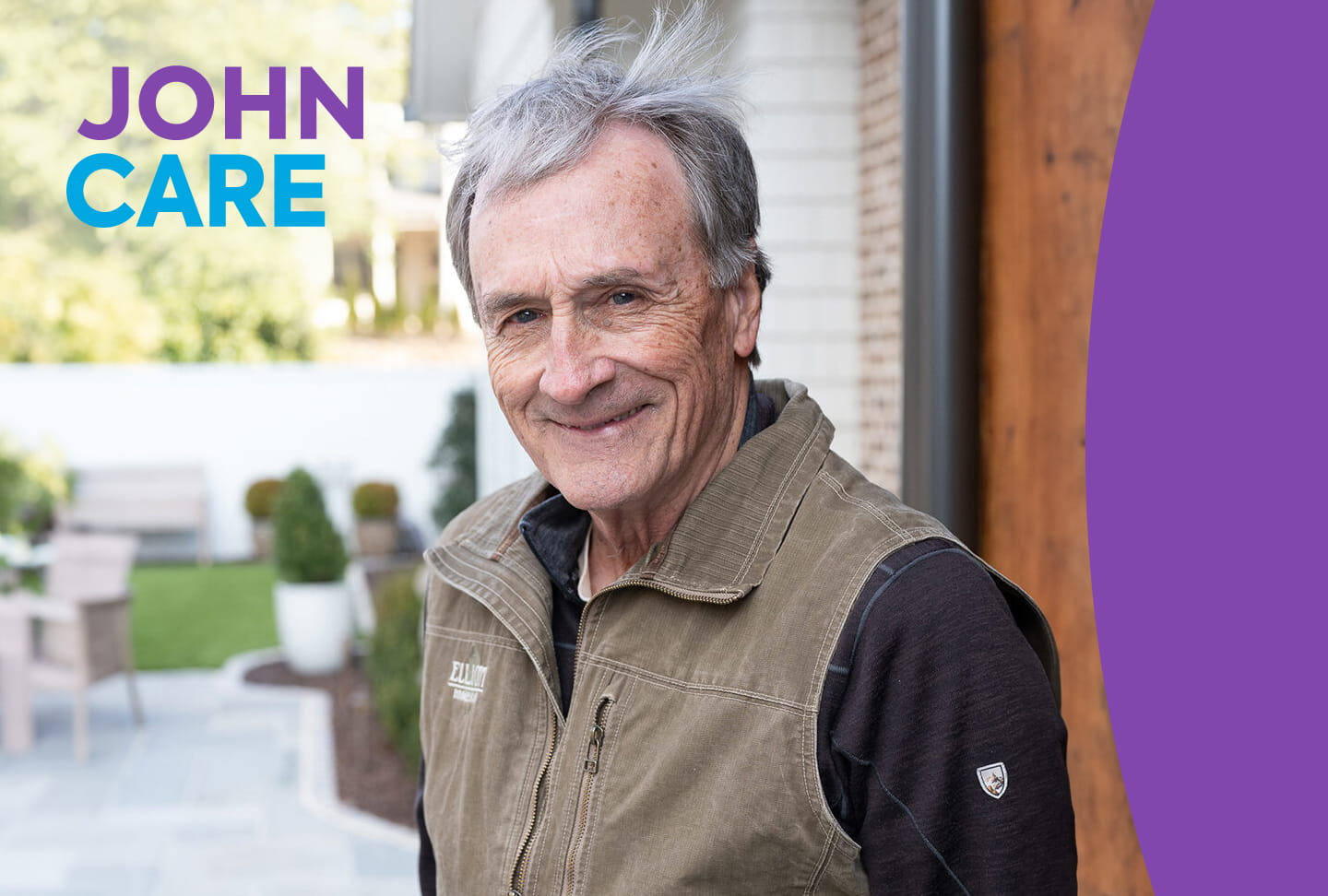
PeopleCare
JohnElliottCare
John Elliott was a builder who enjoyed meeting with clients and planning their future homes. But the effects of Parkinson’s disease made it hard for him to meet with clients and live his life. Then he found a new sense of hope thanks to the Wellstar Parkinson’s and Tremors Program and a procedure called deep brain stimulation (DBS). His experience is a powerful testament to the value of comprehensive care and how his neurologists, functional neurosurgeon and nurse navigator helped him rebuild his life.
Symptoms that were hard to shake
John has been building custom homes in Marietta for 45 years—a career defined by personal relationships with his clients. He loves spending time with his family, hunting, fishing and bushhogging the multi-generational family farm.
But in 2015, John’s hands began to shake. A former client and friend who was a retired neurologist recommended he see Dr. Thomas Holmes, a Wellstar neurologist.
A DaTscan, a type of nuclear imaging test that takes images of the brain, helped Dr. Holmes see a loss in John’s dopamine-producing neurons, which indicates Parkinson’s disease. The progressive neurological disorder affects a person’s motor functions and movements.
At first, medication helped. But years after his diagnosis, John’s medications were barely effective.
“A big part of custom home building is your interaction with your client,” John said. “Meeting with the customer became somewhat of a problem.”
His tremors and involuntary mouth movements left him feeling embarrassed.
“I kind of went into a shell and didn't want to see people because they would make comments, particularly about the mouth movement,” he said. “You want to hide.”

Highlights
Out of Sight, Still a Threat
Five years ago, you probably had hand sanitizer in your car, a thermometer in your bag and a mental checklist for every sniffle. That was life during COVID. But these days? It’s easy to forget what once felt urgent.
The same thing happens with men’s health—especially prostate cancer. For a brief moment, maybe after a friend was diagnosed or during a Movember campaign, it’s top-of-mind. But if nothing seems wrong, it quickly slips to the back burner.
That’s a problem—because prostate cancer doesn’t wait until you’re ready.
At Wellstar, we see too many men surprised by late diagnoses. Why? Because they felt fine. Because they had no symptoms. Because they believed some version of the same three myths:
“Prostate cancer doesn’t kill men.”
Actually, it’s the second leading cause of cancer death in men. When caught early, it’s highly treatable. But when ignored, it’s dangerous.
“I don’t have symptoms, so I’m good.”
Most early-stage prostate cancers are completely silent. No pain, no urinary issues, no warning. That’s why screening matters.
“Testing leads to side effects.”
Screening doesn’t mean treatment. A prostate-specific antigen (PSA) blood test is a simple tool that helps guide the next steps. Many men with slow-growing cancers don’t need surgery—just monitoring. For those who do need treatment, options are far more precise and less invasive than they used to be.
Still, fear or discomfort around the prostate keeps many men from checking in until it’s too late. We get it. It’s not the most glamorous part of the body—but it’s vital.
Think of it this way: you’d never ignore a lump on your neck or blood in your stool. Why ignore the most common cancer in men (besides skin cancer) just because it’s not visible?
Our team at Wellstar makes prostate cancer screening simple, discreet and personalized. We’re here to talk through your family history, explain your risks and offer guidance without pressure. Whether it’s time for a PSA test, a digital exam or just a conversation, we meet you where you are.
Remember: ignoring prostate cancer doesn’t make it go away. It just makes it harder to treat. Learn more about prostate cancer care at Wellstar.
Ready to take action?
Find a urologist near you and book your appointment online. What’s out of sight shouldn’t be out of mind.
We use cookies for booking and general analytics. Learn more about or internet privacy policy.
